Macau, officially known as the Macao Special Administrative Region of the People’s Republic of China, is a unique and vibrant region located on the southern coast of China. With a rich history and a blend of Chinese and Portuguese influences, Macau stands as one of the most fascinating places in Asia. Here, we explore the various aspects that define Macau.
Administrative Information
Macau is a Special Administrative Region (SAR) of China, enjoying a high degree of autonomy except in foreign affairs and defense. It consists of two main regions: the Macau Peninsula and the islands of Taipa and Coloane. Governed by a Chief Executive, Macau has its legal system based on Portuguese civil law, which sets it apart from the rest of China.
Culture and Society
- Language and Ethnicity: Macau’s official languages are Chinese (Cantonese) and Portuguese, reflecting its colonial history. The majority of the population is of Chinese descent, with a significant Portuguese and Macanese minority.
- Religion: Buddhism, Taoism, and Confucianism are the dominant religions in Macau, coexisting harmoniously with Christianity, primarily Catholicism, due to Portuguese influence.
- Traditions and Festivals: Macau is known for its vibrant festivals and traditions, including the Chinese New Year, Dragon Boat Festival, and the Macau International Fireworks Display Contest. These celebrations showcase a blend of Chinese and Portuguese cultural elements.
Economy
- Tourism: Macau is a world-renowned tourist destination, famous for its casinos, luxury resorts, and historic attractions. It has often been referred to as the “Las Vegas of Asia.”
- Gambling Industry: The gaming sector is a significant driver of Macau’s economy, surpassing even Las Vegas in terms of gambling revenue. It attracts visitors from around the world seeking their luck at the numerous casinos.
- Financial Services: Macau has a thriving financial industry, with a robust banking sector and a stable currency, the Macanese pataca (MOP).
Landmarks and Attractions
Historic Sites: Macau boasts a wealth of UNESCO World Heritage Sites, including the Ruins of St. Paul’s, A-Ma Temple, and the Historic Centre of Macao, showcasing its rich colonial heritage.
Modern Landmarks: The skyline is adorned with modern marvels like the Macau Tower, offering breathtaking views of the city, and the futuristic Grand Lisboa Hotel.
Natural Beauty: Despite its urban development, Macau offers natural beauty spots such as Hac Sa Beach and Coloane Island’s hiking trails.
Cuisine
Macau’s cuisine is a fusion of Chinese and Portuguese flavors. Delight in local dishes like Portuguese egg tarts, African chicken, and the iconic Macanese seafood rice. The vibrant street food culture adds to the culinary diversity.
Transportation
Macau has an efficient transportation system, including a modern airport, ferries connecting to Hong Kong and mainland China, and a network of buses and taxis for easy navigation within the region.
Education and Healthcare
The region places great importance on education and healthcare. It hosts several international schools and offers comprehensive healthcare services to its residents and visitors.
Challenges and Future Outlook
Macau faces economic challenges due to its heavy reliance on the gaming industry, making it susceptible to fluctuations in the global economy. Additionally, issues related to housing affordability and income inequality require attention. However, Macau continues to diversify its economy and invest in tourism, culture, and entertainment to ensure a sustainable and prosperous future.
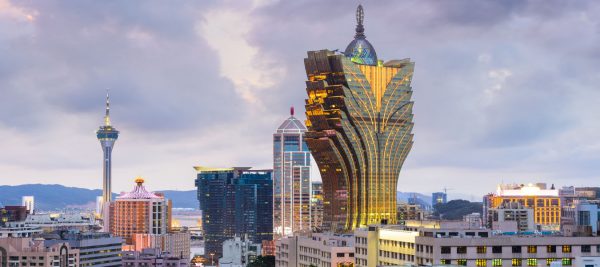
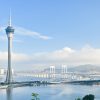
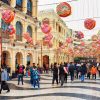
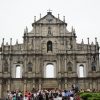
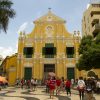
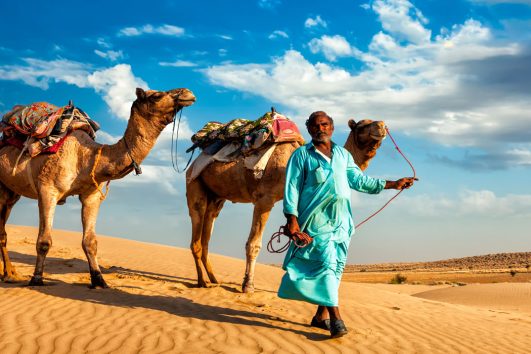
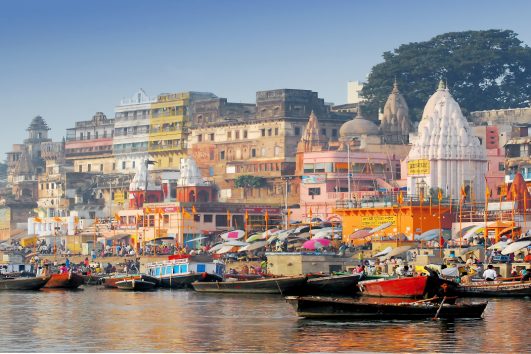
Tour Reviews
There are no reviews yet.
Leave a Review